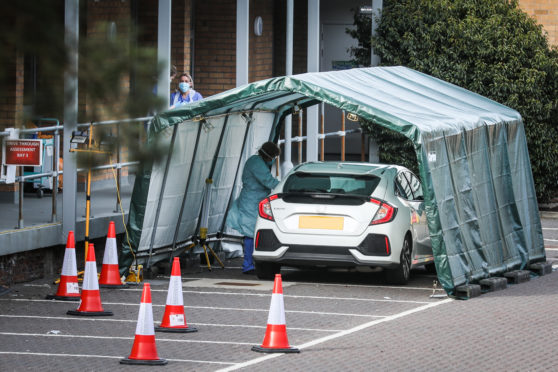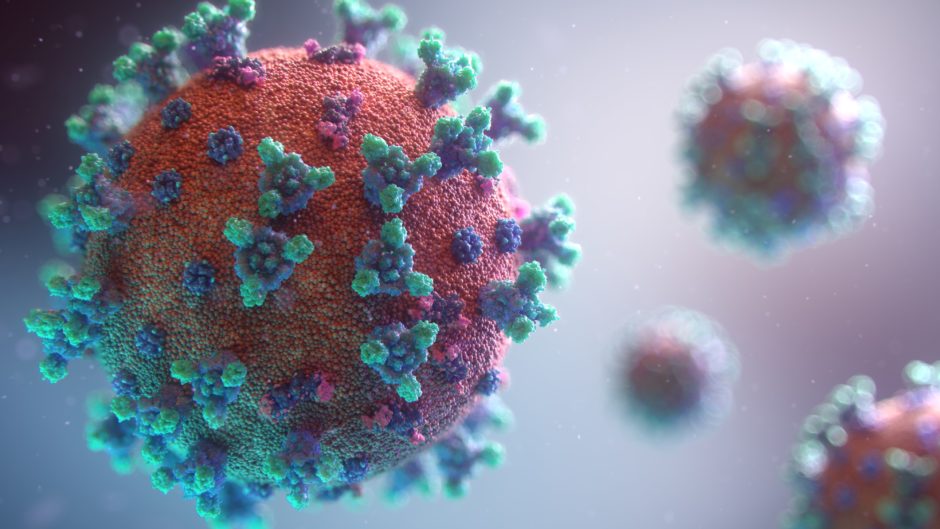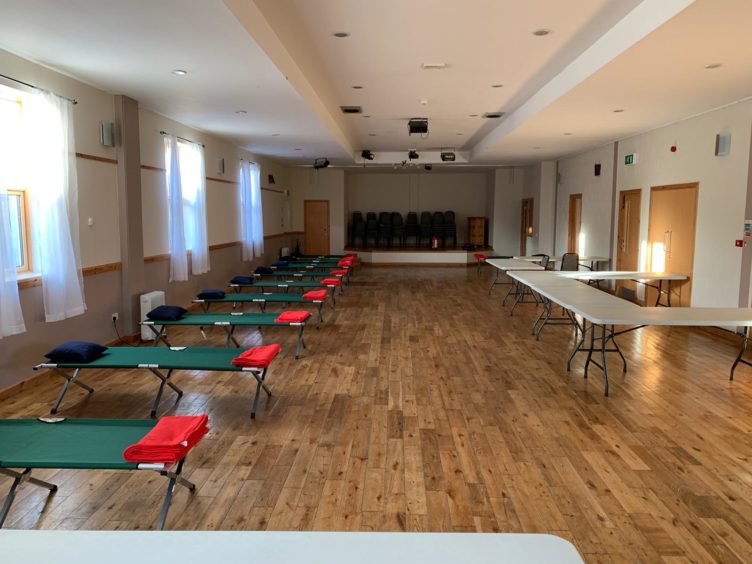
NHS Scotland continued to escalate emergency planning to treat thousands of Scots contracting coronavirus in the weeks ahead.
Testing for the virus will be ramped up in the next few days along with efforts to enlist retired and newly-qualified medical staff to hospitals.
The health service was increasing preparations yesterday as Scotland continued to lock down after First Minister Nicola Sturgeon announced on Friday the closure of Scotland’s restaurants, cafes, pubs, gyms and urged the avoid “unnecessary travel”.
Further restrictions are expected as Scots are encouraged to stay home.
The initiatives emerged yesterday as the number of Scots who have tested positive for the virus rose by 51 cases to 373 and the number of deaths by one to seven. Plans include:
- A massive increase in testing, centred on more temporary “community testing hubs” being set up at hospitals around the country.
- A major drive to bring in retired and trainee medical and nursing staff, along with some currently working in the private sector.
- The allocation of more beds specifically for fighting the virus.
New testing facilities are in the process of being set up. NHS boards including Highland and Tayside have already created drive-through testing stations. Similar facilities in other health board areas are expected to fully open this week.
Members of the public will need a referral from a medical source, such as the 111 helpline or GP, before being admitted and the facilities will not be for patients to turn up to be tested “on demand”.
A large tent was in the process of being fitted out at yesterday at King’s Cross Hospital in Dundee to serve the city. Others in the region will open in Angus and Perth.
Sources suggested similar facilities will be opening across Scotland this week. Patients who give cause for concern will be checked further and could eventually be placed in sealed units to be assessed by medical staff.
An NHS source said yesterday: “These tents are part of community testing hubs which are being set up across Scotland. Further information is being released tomorrow to explain more to the public.
“The test facilities are expected to be open by the beginning of the week. Moves are continuing to get them ready. It’s a fast-moving situation but it will be a matter of days at most before they are functioning.
“They will be used to provide capacity for people who are told to go and get tested by 111 or similar means. The procedure will not just be for people to walk up and go in – people must have received advice to go and be tested.
“People will be given an appointment, either via a GP or 111 or medical advice of some form. It is a drive-through testing facility so people will not require to get out of their cars.”

NHS Scotland advice is if you have developed a cough or fever in the last seven days, stay at home for seven days from the day your symptoms started. If you are suffering from severe symptoms, or your symptoms haven’t improved in seven days, phone your GP or NHS 24 on 111.
Earlier this month, an early version of a testing tent, set up at Raigmore Hospital in Inverness, was inundated with people turning up expecting to be tested on demand. The NHS source said: “They have to be turned away at that point if they have not been pre-screened.”
Meanwhile, medical students and workers in the private sector are being recruited to boost frontline services.
Health boards are recruiting fourth-year students to “help out where required”. They are also looking for staff working at private practices to work within the NHS.
It is understood Scotland’s biggest hospital, the Queen Elizabeth University Hospital in Glasgow, is sectioning off half of one of the children’s wards for coronavirus patients and an area of the adult A&E department.
Yesterday a picture emerged of a hospital overspill facility, set up in a village hall on the island of Barra. The photograph showed a line of camp beds, in the village hall at Castle Bay on the island.
Meanwhile, thousands of retired doctors and nurses have begun receiving letters from health boards asking them to return to work to help the NHS face the “unprecedented challenge” of the pandemic.
“An important element of our resilience planning is to seek the support of recently retired colleagues,” said the letter.
Former consultant Dr Crawford Reid said he was “ready, able and willing” to come out of retirement to lend a hand during the crisis.
Dr Reid, 64, who lives in Auchterarder, Perthshire, said: “There’s always a national shortage of staff within the NHS, but as we face this dreadful virus and look to see what has happened in Italy and China, it’s clear we all need to do what we can to boost the frontline.
“And we don’t just need doctors. We also need nurses, auxiliaries, cleaning staff and anyone else who has experience within the health service or has needed skills.
373 cases in Scotland with seven deaths
5,018 cases in Britain with 233 deaths
303,051 cases around the world with 12,955 deaths
Describing the scenes in hospital, one doctor told the Sunday Post: “We are acutely aware of the 13 Italian doctors who have died. It would seem the more often you are exposed to the virus the more deleterious the effect on a person.”
“London ITUs (intensive treatment units) are busy and we are watching and waiting in Scotland. It’s like a lull before the storm. We look at colleagues working in Italy and wonder if this will be us in a week or two.
“Incidence wise, we are where Italy was two weeks ago in terms of numbers.
“Please do not leave the house unless you need to.
“Young people are becoming ill, people with no risk factors.”

Enjoy the convenience of having The Sunday Post delivered as a digital ePaper straight to your smartphone, tablet or computer.
Subscribe for only £5.49 a month and enjoy all the benefits of the printed paper as a digital replica.
Subscribe